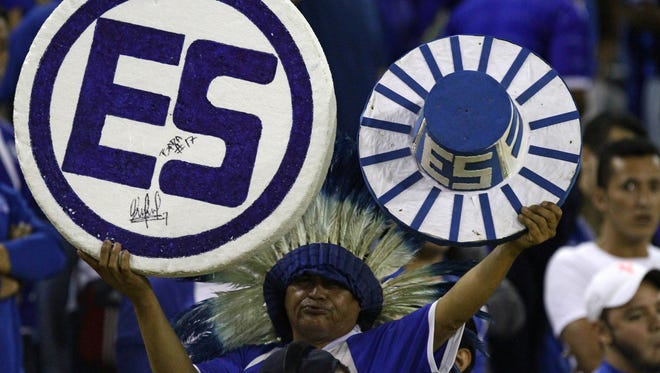Rogers: El Salvador offered bribe to win? That's progress for soccer
You know a sport has issues with corruption when a scandal erupts over an alleged bribery plot that would have paid players not to throw a game.

Malfeasance in soccer is something we have become accustomed thanks to the allegedly nefarious practices of former FIFA president Sepp Blatter and his cronies, but the latest funny business has a far more farcical leaning.
Members of the El Salvador national team have produced audio evidence claiming that they were offered financial incentives to influence the result of a World Cup qualifying game against Canada on Tuesday night.
The alleged briber — a Salvadorean businessman named Ricardo Padilla — was surreptitiously recorded offering bribes of up to $3,000 a man to the players. Not to lose, mind, but to try to win.
El Salvador soccer players say they were offered bribe to fix match
Padilla called it an incentive for success and said he did not fear any recriminations.
The plot thickens because of the nature of the situation. Qualifying in the CONCACAF region that also includes the United States is at a pivotal juncture. The top two teams from Group A will progress to the final qualification round. Mexico is guaranteed to top the group. Honduras is three points clear of Canada going into the last game. El Salvador is at the bottom and cannot progress.
However, things get a little tricky on Tuesday with Honduras due to visit Mexico, where it will be a significant underdog, and Canada a favorite to beat El Salvador.
If, for example, the Canadians were to rack up a victory in Vancouver, over an opponent with nothing to play for, it could move into second place, provided Honduras loses.
Therefore, Honduras finds itself rooting for its neighbor El Salvador, two countries that once embarked upon a bloody four-day war that was sparked in part by a World Cup qualifying soccer game. Look it up, it happened.
The burning question is why Padilla felt his actions necessary? Is he simply a loyal patriot keen to see his national team perform with honor in a game with nothing at stake? Was there a gambling element to this, with international soccer games seeing vast sums wagered repeated attempts to fix matches.
Or perhaps Padilla was a front man for Honduran interests desperate to see their country take a step closer to the World Cup. If so, did those Honduran interests really fear that the El Salvador players could be bought off by the other side — effectively paid off by a pro-Canada backer?
They probably shouldn’t have worried. If Canada was minded to cheat its way back to the World Cup — it hasn’t appeared since 1986 — our northern neighbors aren’t doing a great job of it, failing to reach the final six-team qualifying round for the past 20 years.
FIFA president open to 40-team World Cup, co-hosts
Games such as these provide a nightmare for anti-match fixing monitors. The most high-risk games are those featuring one team with everything to gain and another with nothing at stake. Throw in the fact that one team may feature players who do not ply their trade in lucrative leagues and may play for a relative pittance, and the danger increases.
Credit then to the Salvadorean players for bringing things to light. Match-fixing is a touchy subject in El Salvador, where 14 players received life bans for colluding to influence games in 2013, effectively decimating the national team of a generation’s worth of talent. Deals and offers such as that alleged against Padilla would once have been accepted or rejected in murky corridors. Not this time.
This time there might be acrimony, conjecture, remarkable press conferences with audio evidence and headlines that scream of bribery. Believe it or not, in the mad, bad world of international soccer, this is progress.